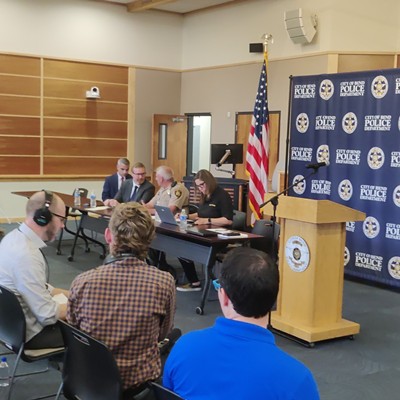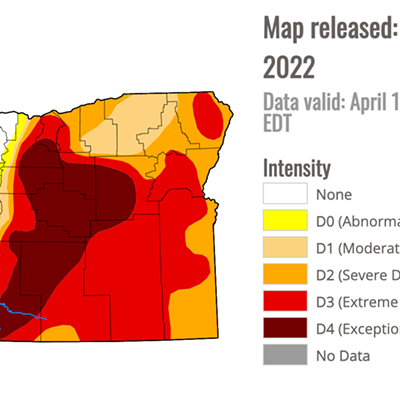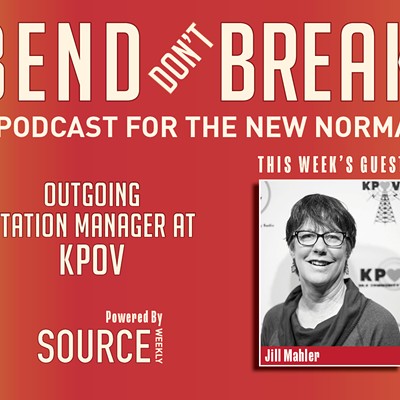Oregon residents may feel lucky not to have to pay a sales tax, but the reality is that someone has to make up that money. A new measure will be placed on the November 2016 ballot with the goal of taxing those who make the most—but according to some, it could cost the state big in the end.
Under current law, C-corporations in the state of Oregon with sales of more than $25 million must pay a minimum $30,000 in taxes (in addition to corporate income tax, currently 6.6 percent for companies with income below $1 million and 7.6 percent for companies with income above $1 million). Initiative Petition (IP) 28 changes current law to say those companies must pay a minimum $30,001 plus 2.5 percent of any sales over $25 million. So for instance, a company bringing in $35 million would pay $30,001 plus $250,000 (2.5 percent of $10 million), or $280,001—and that is before the income tax they pay.
Katherine Driessen, press secretary for A Better Oregon, the organization that introduced IP 28, explained the measure is needed to help Oregon compete with national averages in many social services.
"It's enough to boost our graduation rates to national average," she explained. "It's enough for us to make healthcare more affordable, and it's enough for us to help seniors stay in their homes longer."
A Better Oregon spent more than four years testing different ballot measures that would help bring in additional income and would "make a real meaningful difference."
But according to Economic Development for Central Oregon Executive Director Roger Lee, the impact of the measure could cost the state in other ways—like jobs—as well as potentially creating a trickling-down sales tax on Oregonians.
"[This will affect] not just the wealthy, not just business owners," he explained. "It's going to impact banking, grocery stores, utilities, car dealerships, etc. A lot of high-volume, low-margin-type businesses."
EDCO believes IP 28 would affect around 10 or 15 companies in the Bend area. A report by the Oregon Legislative Revenue Office found that the measure would raise around $548 million in new revenue from 2015 to 2017, $6.1 billion from 2017 to 2019, and $6 billion from 2019 to 2021.
The report also found that IP 28 would reduce the growth of Oregon's workforce by a total of 20,000 jobs between 2016 and 2022. And although wages will be higher, the report found that is because many lower-paid private sector jobs, many in retail, would be eliminated and shifted to higher-paying public sector jobs, due largely to the programs proposed under the measure (the report estimated that 38,200 fewer private sector jobs would be created compared with current forecasts, while 17,700 new public sector jobs would be created). Consumer prices would also rise under the measure.
"Because IP 28 is based on Oregon sales and heavily concentrated on domestic consumer sectors, it is expected to largely act as a consumption tax on the state economy," according to the Oregon Legislative Revenue Office's report. "Taxes initially born by the retail trade, wholesale trade, and utility sectors are expected to result in higher prices for Oregon residents."
But A Better Oregon believes the measure is needed because large businesses are not doing their part to take care of the average Oregonian.
"The truth is these are not small mom-and-pop businesses that we are talking about," Driessen said. "If you are doing $25 million in sales, you are a large corporation. We are asking these corporations to just pay their share. It's not unreasonable."
Companies are also working to prepare for the recently-passed required paid sick leave law, as well as an increasing minimum wage. Lee said the rules are not only making it more difficult for companies to maintain a margin, but also creating an atmosphere that is making them feel unwelcome in the state. He explained that, "Businesses are feeling a bit demonized when they are providing the jobs for people. This is just one more thing. It's all these things together that businesses are saying, 'I need to get out of this state because it feels very hostile. It feels like I am being told what to do at every corner and that just doesn't feel right.'"
According to Lee, the companies are not just unhappy, but many are actually looking to leave, which could in turn have a significant effect on jobs.
"It doesn't impact all businesses, obviously, but we have a number of businesses that don't even meet the threshold that would probably leave the state because they feel the state's policy is headed in the wrong direction," Lee explained. "The reality is they are big employers. There may be a smaller number of companies but they could have a huge impact. Each one of those [provide] a big significant number of jobs."
Oregon would also become one of only five states in the country that has a gross receipt tax, which taxes businesses based on total sales rather than net income.
The Council on State Taxation (COST) has been working closely with the business community across the state to help it navigate the possibilities of the measure passing. Nikki Dobay, west coast tax counsel for COST, explained, "Some companies don't even make a profit of 2.5 percent. In those situations they will have to decide what to do, and it's either going to come out as increased prices or they're going to have to cut workforces. So I think companies are going to have to make very hard decisions."
While A Better Oregon is focused on helping IP 28 pass in November, many business organizations are working toward its defeat. EDCO believes IP 28 will be a detriment to job growth for which they have worked so hard. Lee explained that, "From our perspective, defeating IP 28 is very critical to hopefully sending a message back to businesses saying, 'You are supported here.' But it's going to be a big bloody battle to do that. Even the work EDCO is doing is not driving people to come here for jobs. We are just trying to keep up with the people who are coming here anyway and need jobs. This could unwind 20 years of work."
A Better Oregon believes that the measure is needed to better the lives of Oregonians. And where sales tax in the state has been non-existent, IP 28 will solve Oregon's tax issues.
"We are not asking for anything extraordinary, all we are asking is that they pay their share," Driessen explained. "And we think that the privilege of doing business in Oregon means they have to pay their taxes."


























